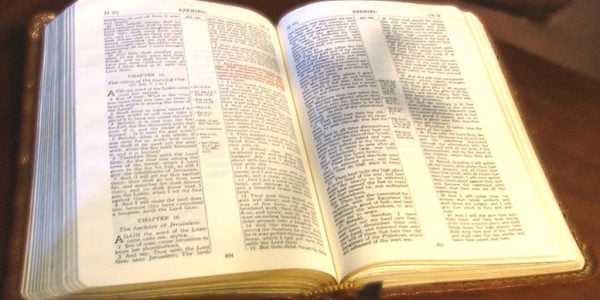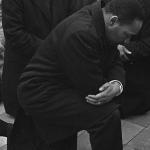
The best preparation for me to become a woketivist as an adult was growing up evangelical. In 2000, when I stumbled into radical political circles in DC, I already knew that white men were wretched sinners so there was hardly any need for theological adjustment. My “faith” was still measured by my capacity to believe hard things. It was just that the hard things were slightly different.
The hard things evangelicals believe in are things like hell, God’s wrath, the abject wickedness of every human being, the futility of the supposed progress of human civilization, and of course as the ultimate litmus test, the sinfulness of practicing homosexuality. The hard things woketivists believe in have mostly to do with the all-pervasiveness of corrupt power structures like white supremacy, patriarchy, heteronormativity, and capitalism. I’m not making any commentary on the relative validity of either of these belief systems to state simply that believing hard things is a source of social currency for both evangelicals and woketivists. If I believe things that seem un-self-serving and sacrificial, it’s costly, which is to say that I have paid something and thus deserve some kind of credit. To believe that being gay is wrong in a society that has largely accepted being gay seems costly just like naming and condemning the all-pervasiveness of white supremacy as a white person seems costly.
One thing I should clarify when I’m making this comparison is that I’m defining woketivists as progressive allies whose “wokeness” is not self-empowerment through knowledge (the actual definition of wokeness for marginalized people) but rather believing purportedly sacrificial and costly beliefs that make you a better person than those who are ignorant. What progressive ally woketivists and evangelicals have in common is that we have created “orthodoxies” that are defined by the necessity of believing hard things.
This is why for conservative evangelicals, “orthodoxy” is not about whether your beliefs conform to the doctrine of the recognized ecumenical councils of Christian history that determined the meaning of the word orthodox until very recently, but whether you believe “hard things” that prove your “faith” is sufficiently self-sacrificial (e.g. that homosexuality is a sin). For woketivists, getting your woke points requires posturing on social media with the harshest, most radical possible position on a particular issue and tearing into people who are insufficiently “woke.” Sometimes, it gets confusing like with Syria. Is it more radical to be anti-interventionist or to support overthrowing the fascist dictator of Syria?
In any case, I think there’s a valid place for both wokeness and Christian orthodoxy. The problem is when they are ends unto themselves. “Wokeness” as social currency for the sake of personal branding is toxic; being aware of one’s social position within systemic power structures for the sake of more effective solidarity is indispensable. Similarly, a Christian “orthodoxy” whose boundaries are defined by the need to have “hard beliefs” that feel costly enough to earn salvation is toxic and actually heretical; true Christian orthodoxy is that range of belief about God that best prepares a person’s heart to receive the gift of faith. But people who are completely ignorant about social systems can intuitively act with perfect solidarity simply because of their humility and compassion in the same way that Christians with un-orthodox beliefs can have a real faith in God that is rich and beautiful.
Christians who actually have the gift of faith do not need to bastardize orthodoxy into a set of hard beliefs they can use as currency. Politically conscious people who are most concerned about how to best live in solidarity with marginalized people do not need to perform their wokeness to build their brand and score points. Now this isn’t to say that it’s invalid to debate theological orthodoxy or to write provocative social critiques on social media. We just need to be self-reflective about what we’re doing. If we’re trying to earn points with costly beliefs, we’re going to come across differently than if we’re genuinely seeking the truth or trying to educate others for the sake of love and solidarity.
The irony is that the exhibitionist “costliness” of woketivism and faux “orthodoxy” is actually a whole lot easier than the lived sacrifice of having real solidarity relationships or practicing Christian discipleship. In a social media age in which people escape physical bodily existence by hiding in their virtual words, it makes sense that faith has been defined as believing hard things. Much better to pursue a life of embodied solidarity and a faith that is lived discipleship.
Check out my book How Jesus Saves the World From Us!
Please support my campus ministry NOLA Wesley as a monthly patron or one-time donor!












